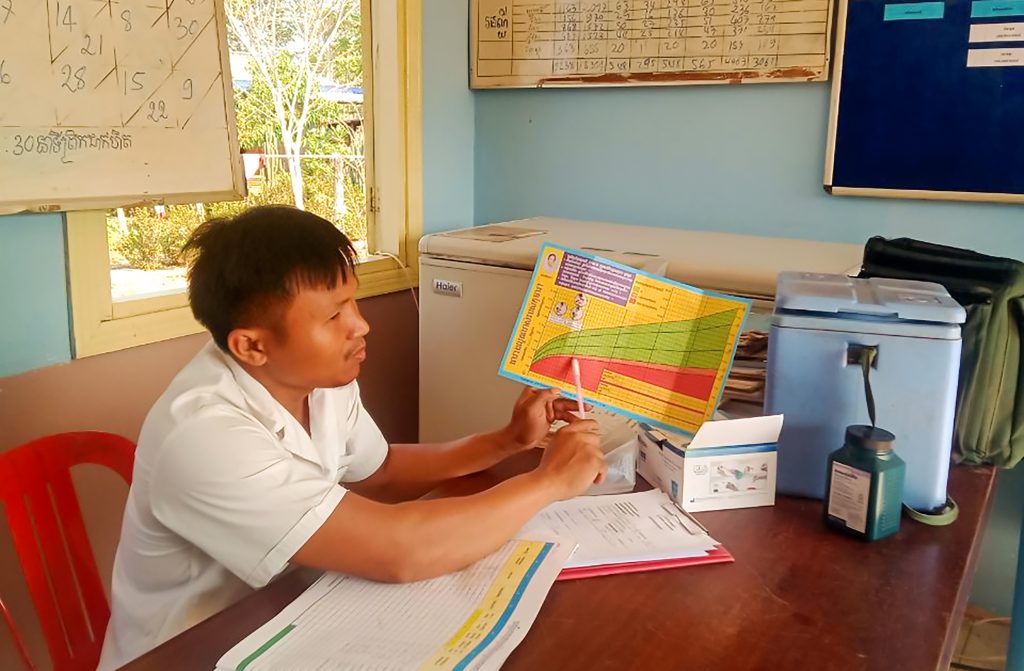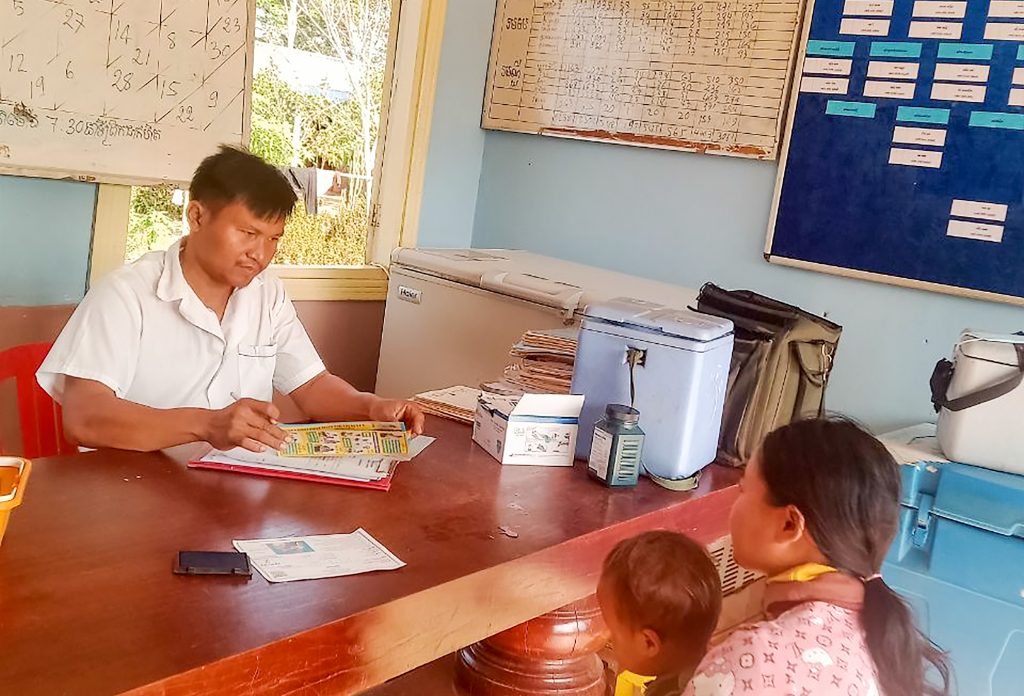From Stigmatized Orphan to Nurse
Un Lida is part of the Kuy minority group who are indigenous to Preah Vihear province, Cambodia. Orphaned as a child, Lida lived in a pagoda. Facing ethnic discrimination, poverty, and loneliness, Lida was nevertheless undaunted in his desire for a better life.
His life struggles inspired him to become a nurse. He worked many jobs to support his studies. Now, at 31, Lida is married with one child and is known to be a humble and compassionate person, despite still contending with discrimination and stigma.
Today, Lida works at a local health centre, caring for outpatients. Lida lacked confidence in interacting with his clients and felt that he was not very good at health-related counseling.
When Lida was given the opportunity to participate in special trainings for healthcare providers through the TOGETHER project, he didn’t hesitate to join.

TOGETHER: Improving Health Services
The TOGETHER project[1], with generous support from Global Affairs Canada, works with remote and indigenous communities in Cambodia, Kenya, the Philippines, and Uganda to ensure that the most vulnerable people in these areas can exercise their health-related human rights.
In settings far removed from major urban areas, access to quality health care is one of many obstacles to the enjoyment of health-related human rights.
TOGETHER is addressing this issue by increasing access to health care while also ensuring its quality. The project’s trainings inform and empower healthcare providers, social workers, and educators to deliver inclusive health and nutrition services to their clients.

Building Skills and Confidence
Lida attended trainings on Youth Counseling and Adolescent Sexual and Reproductive Health and Rights. Through his active participation, he gained a good understanding of counseling, acquiring skills such as active listening, questioning, and observation. Moreover, Lida says he became brave. Lida now works to make his clients feel comfortable and confident in his daily service delivery.
Lida shares that he had no prior knowledge, experience, or resources for these skills. He says he has learned a lot from the TOGETHER trainings.
“I have become confident and satisfied,” Lida says. “The trainings have been very important and helpful to health centre staff, building our capacity to give quality care. ADRA should continue to provide capacity building to health centre staff.”
by: Kong Phano, ADRA Cambodia, with Heather Grbic, ADRA Canada
[1] uniting Towards Gender Equality for enjoyment of women’s and girls’ Total HEalth and Rights

